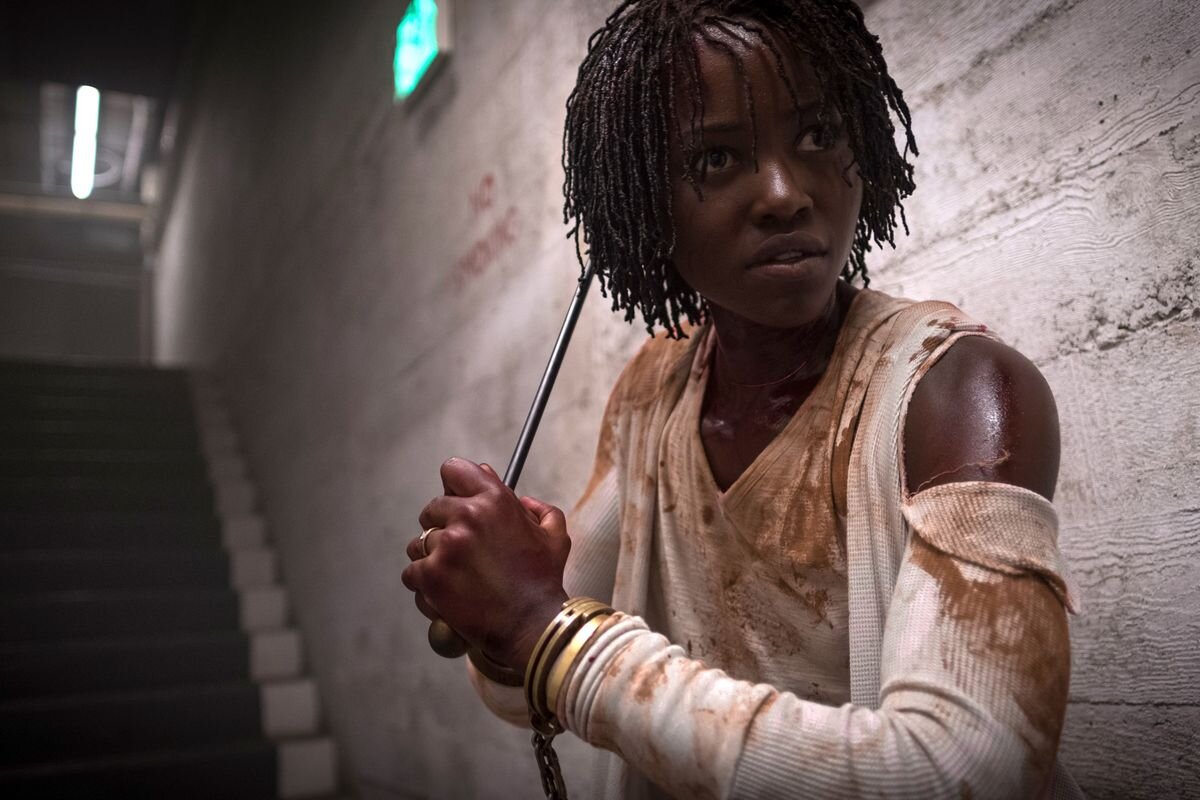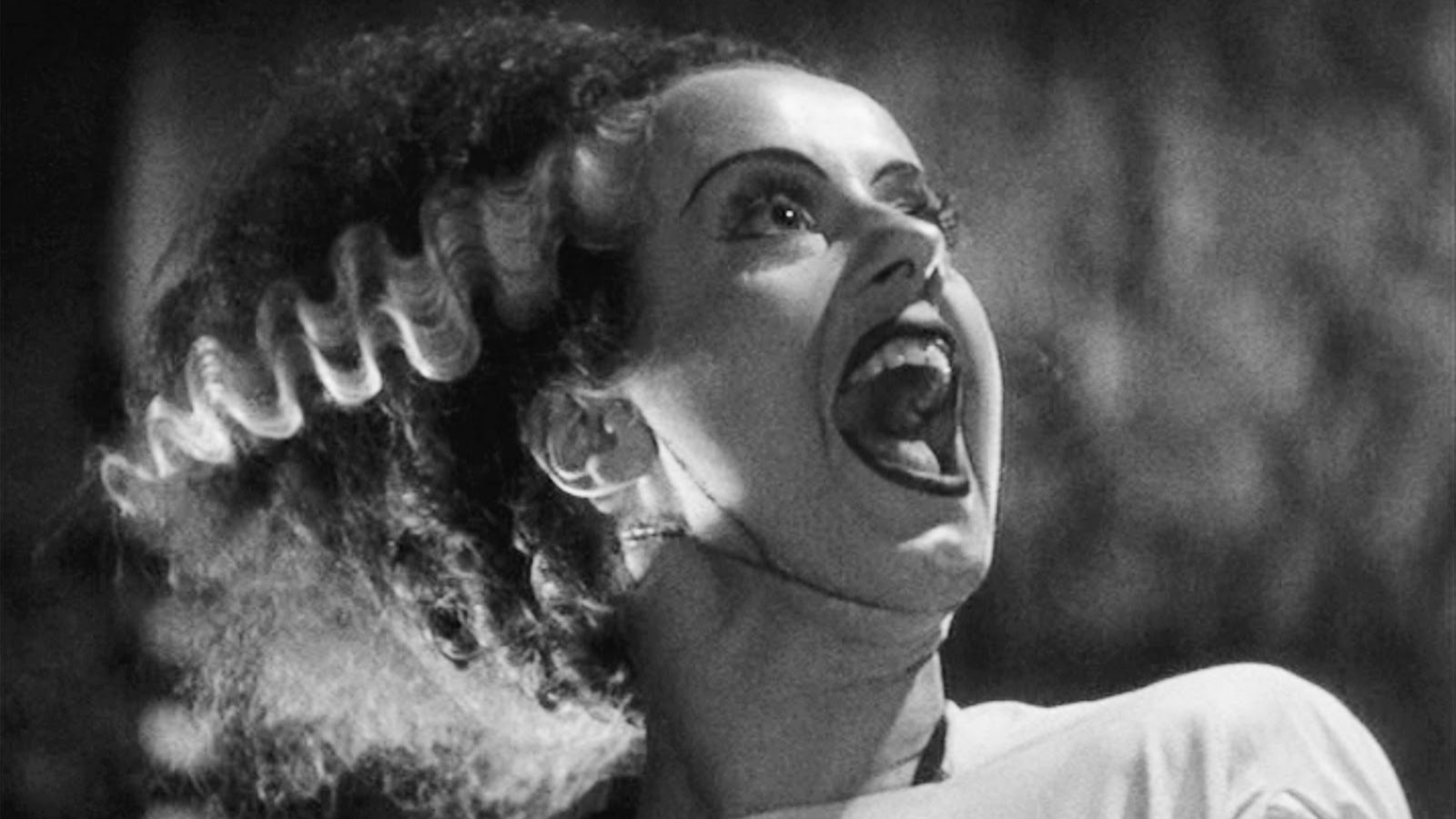Monsters Below: Jordan Peele's Us & Bong Joon-ho's Parasite
Warning: This post contains full spoilers for both Us and Parasite.
Don’t you just love it when two seemingly unrelated films work perfectly in tandem with one another? That’s how I feel about 2019’s two genre masterpieces, Jordan Peele’s Us and Bong Joon-ho’s Parasite. Both films take on themes of classism and revolt, though in wildly different ways. I could not stop thinking about Us when I saw Parasite this fall, and having recently rewatched the former, the parallels really jumped out.
The People Underground
The most common element of comparison between Us and Parasite is the symbol of people who live below ground coming up to the surface. The Tethered in Us come up for revenge upon a race of people who don’t even know they exist. The Tethered are bound to their above-ground counterparts, forced to mimic a freedom they could never experience. The Wilson family’s actions—getting married, having kids, enjoying a carnival—are torture for the Tethered, and they are complicit in the subjugation of the Tethered.
Parasite explores a similar theme, but it’s less extreme. The Kims live in a semi-basement, and Gook Geun-sae (Park Myung-hoon) lives in an underground bunker that even the Parks don’t know about. The underground bunker is especially interesting to me because it is the closer comparison to the Tethered’s underground tunnels. Geun-sae interacts with the Parks in his own way (similar to how the Tethered mimic the above-ground people) but the Parks have no clue. And like the Tethered, when the Kims and Geun-sae come above ground they wreak havoc.
Doppelgängers
Both movies explore the theme of doppelgängers and counterparts. Of course, Us is far more literal in featuring actual clones. Jordan Peele discussed how a major theme in his film is the how we are our own worst enemy and worst nightmare. The Tethered think and act like their above-ground counterparts; our own flaws and anxieties are amplified and reflected through the Tethered making them scarier than most horror film boogeymen. In Parasite, the doppelgängers aren’t literal. The film features two families with the exact same structure: mother, father, daughter, son (as do the Wilsons in Us). The nuclear families are separated by class; the poor family leeches onto the rich family, who are cruel in their obliviousness and classism. The Parks are on the surface nice people—or at least, they think they are good people. But they have a blinding lack of empathy, which lets them to be drained and fleeced of their money. Their complete ignorance of what is happening literally right under their nose leads to their downfall—again like in Us.
Silent Authorities
One thing that really strikes me about both Us and Parasite is how little a role the government and society plays in either film. Red (Lupita Nyong’o) explains to Adelaide (Nyong’o again) that the Tethered were a botched government experiment to control U.S. citizens. At some point, the experiment failed and the Tethered were just left to their own devices. Granted, we don’t know how Red learned about the history of the Tethered, and so the audience should take her explanation with a grain of salt. But if we take Red at her word, the government is ultimately at fault for creating and then abandoning the Tethered. It just seems like whichever agency was in charge left a long time ago, likely absolving itself of the duty to care for the Tethered and assuming that the issue would take care of itself.
I was thinking about this theme with Parasite as well. Now I’m not even close to being an expert on Korean politics. But I can imagine that the nation is facing problems similar to that in the U.S., including a wealth gap. That much is obvious in Parasite. The Kims live in a semi-basement, with little opportunity to climb out of their class. They work low-wage jobs, and the film suggests their actual skills are left underutilized. It seems like they have to lie, cheat, and steal to get what they want. And remember the greatest trick the government pulls on its lower class is to have them tear each other apart for scraps rather than providing the resources for everyone to thrive, like the Parks and Gooks fighting in the Park home. One could even see the Parks as a metaphor for the government, who remain ignorant of the Kims and the Gooks killing each other for the Parks’ resources.
Native Imagery
In both Us and Parasite, Peele and Bong bring in Native American imagery as a sly commentary about oppression and flippancy about violent histories. In Us, the young Adelaide (Madison Curry) encounters the Tethered in a funhouse which is a garish appropriation of Native American culture. The funhouse is called “Vision Quest” and has a very stereotyped and offensive painting of a tribal chief. Years later, the funhouse is redesigned with a Merlin motif. This suggests America stealing from Native culture in a crude and horrible way, then whitewashing it away as a means of being “politically correct,” without actually addressing the horrific genocide inflicted by pilgrims on Native Americans. The oppression and marginalization of Native people is also reflected in the Tethered, who were treated cruelly and inhumanely then easily forgotten by people above ground.
The young rich boy in Parasite, Park Da-song (Jung Hyun—jun) is in Boy Scouts and plays with a bow and arrow, wants to sleep in a teepee, and is essentially obsessed with Native culture. But I don’t even think he really know anything about it. Again, this is used as a metaphor for his and his family’s complete ignorance of the marginalized people in their midst. He can easily play with toys (which come from America, of course) that are artifacts of America’s painful past, just as his family can live in luxury without paying attention to what’s happening around them. Much like Stanley Kubrick’s The Shining, Native imagery become symbols for oppression and the willful silence of the elite.
Literalism and Metaphors
What fascinates me about these two films is how they play with literalism and metaphor, almost as if they are in conversation with each other. Us is literally about doppelgängers, while Parasite has metaphorical doppelgängers. But the Tethered in Us can be a stand-in for any and all of society’s ills, and Peele’s unwillingness to choose one is what makes Us such an unwieldy contraption. Bong Joon-ho on the other hand is telling a very literal, grounded story and one that, genre trappings aside, plays out quite realistically. Us explores an uprising that concludes with an homage to a meaningless 1980s stunt. Parasite begins with a coincidence that leads to a money making scheme, but ends like a tiny revolution. The blending of genres is interesting with both films as well, as they mix together horror, action, and comedy with scathing political statements and all in the guise of a crowd-pleaser.
Both Us and Parasite end with question marks, or at least an ellipses. There is more story to tell, but that’s left for the audience to imagine. Us is messy and weird, and works better as an analogy than anything else. Parasite is tightly constructed and perfectly designed. But both movies are vastly entertaining for those reasons as they work in conduit with each other indicting the class conflicts of society.















